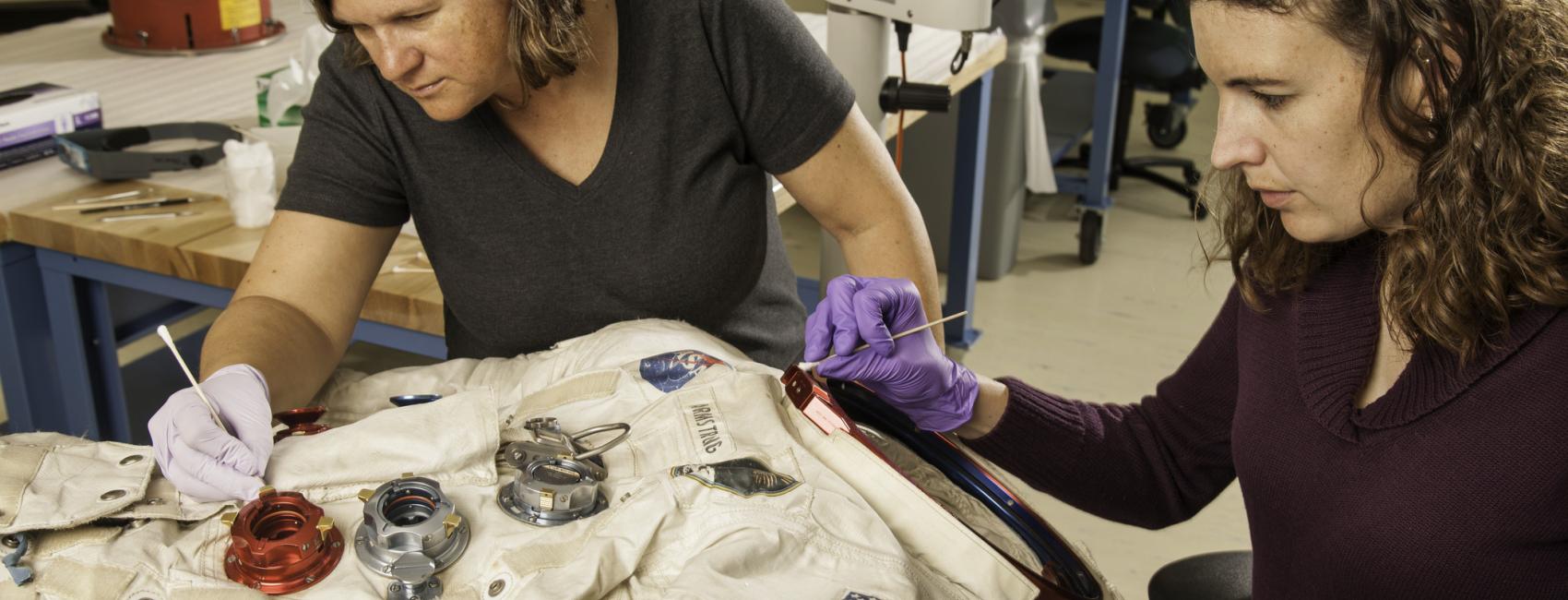
Remembering Piers J. Sellers, Scientist and Astronaut
Dec 27, 2016
By Jennifer Levasseur and Margaret A. Weitekamp

Dec 27, 2016
By Jennifer Levasseur and Margaret A. Weitekamp
One of the great honors of working at the Smithsonian’s National Air and Space Museum is the opportunity to interact with some of the few humans to orbit the Earth. Earlier in December, we mourned the loss of one of our dearest supporters and friends, Senator John H. Glenn. Now, we have again lost a featured speaker at the Museum, Dr. Piers J. Sellers, who worked at the nearby NASA Goddard Space Flight Center. The following stories about working with Sellers are from two Space History Department curators, who found his unique spirit and passion for science inspiring and heartwarming.
The Museum’s first correspondence with Dr. Sellers occurred when he helped the Museum and NASA carry out a tribute to Dr. John Mather, the first NASA scientist to win a Nobel Prize (Physics, 2006). Sellers agreed to take a replica of Mather’s Nobel Prize, held by the Museum, with him during his mission into space. (You can read the full story of what it took to send the Mather Nobel Prize medal replica to space.) What impressed me most about Sellers in those interactions was his down-to-Earth good humor. Notably, when the package containing the medal reached the Johnson Space Center, he emailed back immediately, “Hello everyone, I have received the Nobel Prize. (I always wanted to say that.)”
Sellers, like many who donate artifacts to the Museum, expressed surprise at the special handling that the objects received once they were in the Smithsonian’s care. In preparation for the STS-132 crew’s appearance at the Museum in July 2010, which included the ceremonial return of the Mather Nobel replica, I sent Sellers a detailed schedule of the morning’s events. When we met again that day, he chuckled at the elaborate instructions about handling the medal using archival gloves. He pointed out that until he actually put the medal into my gloved hands, he’d just been carrying it in his flight suit pocket! He enjoyed the ceremony, however, beaming as he honored Mather, his Goddard Space Flight Center colleague, by presenting back to the Museum the space-flown medal.
For the arrival of the Space Shuttle Discovery in April 2012, I was asked to take charge of organizing and leading a group of about 30 NASA astronauts who would escort the vehicle from the Washington Dulles International Airport property to the Steven F. Udvar-Hazy Center where it would line up nose-to-nose with Space Shuttle Enterprise for our “Welcome, Discovery!” program. Dr. Sellers left me with an immediate impression of his laid-back charm when he rushed in 30 minutes before the start, and with a wry smile, stated how traffic had just been a bear getting there from Maryland – something we all recognize as common for the DC area. Seeing my tense and nervous face, he put an arm around my shoulders and put me at ease. On a day that was filled with so much orchestration, we were bound to have little hiccups along the way.
My next encounter with Dr. Sellers was for Earth Day in 2015, when I hosted a program with him in our Space Race exhibition at the Museum in Washington, DC. Again, he was running late coming in from Maryland, but we got him prepped and seated with minutes to spare. But his presentation was awe-inspiring. He left no doubt for our visitors that day that NASA’s work in climate research was shaping the way we understand the human impact on our atmosphere, oceans, and all life. Though he became an astronaut out of personal interest, he used that persona as a platform to talk seriously about the challenges we face as a planet, and certainly impressed upon me the need for a more environmentally-minded perspective in everyday life.
As recent director of Earth Science and deputy director of Sciences and Exploration at NASA’s Goddard Space Flight Center, Piers Sellers was a prolific researcher and eloquent voice for understanding Earth’s global environment and climate. We join the many others who will miss him.

We rely on the generous support of donors, sponsors, members, and other benefactors to share the history and impact of aviation and spaceflight, educate the public, and inspire future generations. With your help, we can continue to preserve and safeguard the world’s most comprehensive collection of artifacts representing the great achievements of flight and space exploration.
We rely on the generous support of donors, sponsors, members, and other benefactors to share the history and impact of aviation and spaceflight, educate the public, and inspire future generations. With your help, we can continue to preserve and safeguard the world’s most comprehensive collection of artifacts representing the great achievements of flight and space exploration.